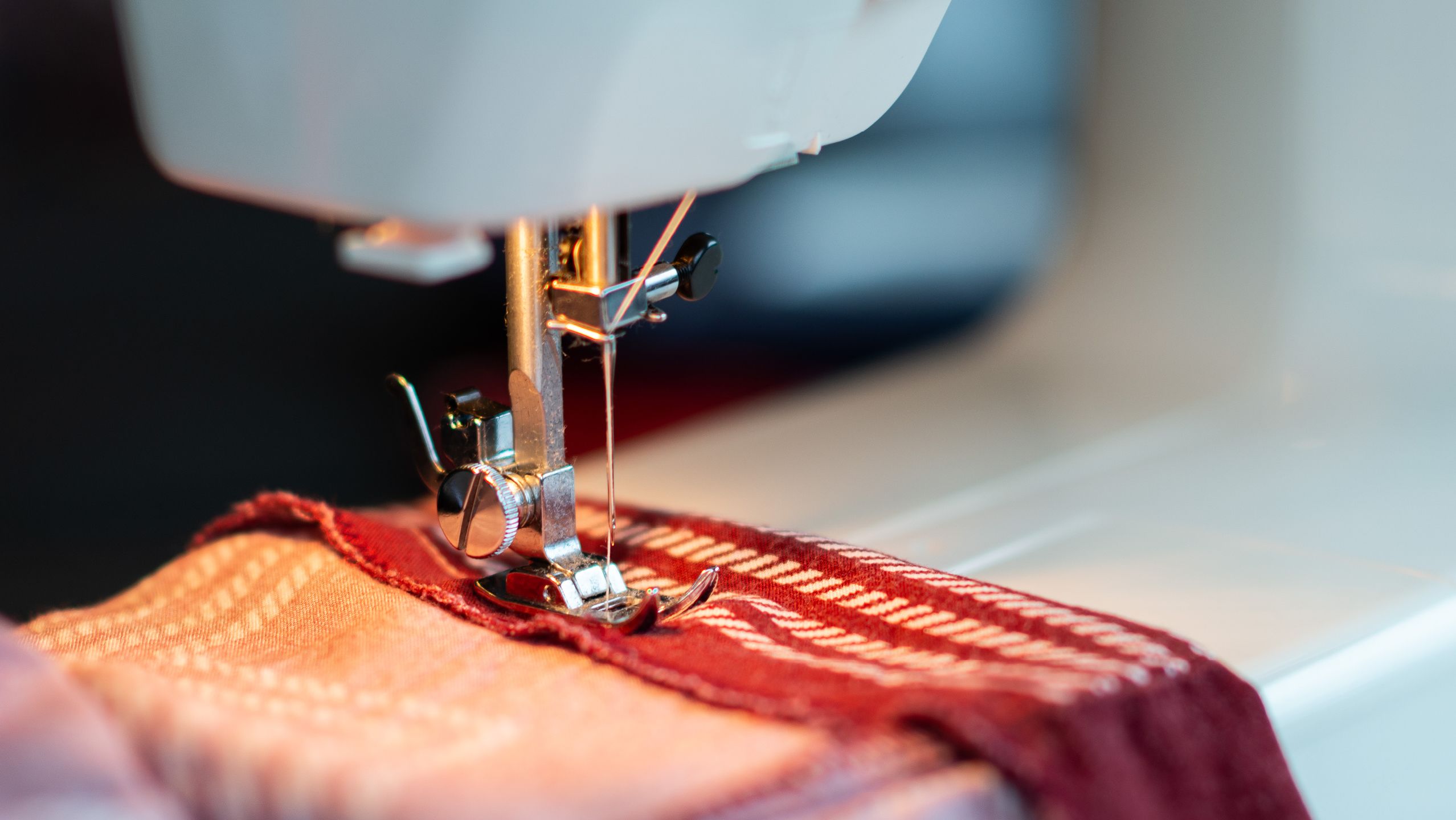Be inspired by Gulistan’s stitching
Sewing her lifelong dream
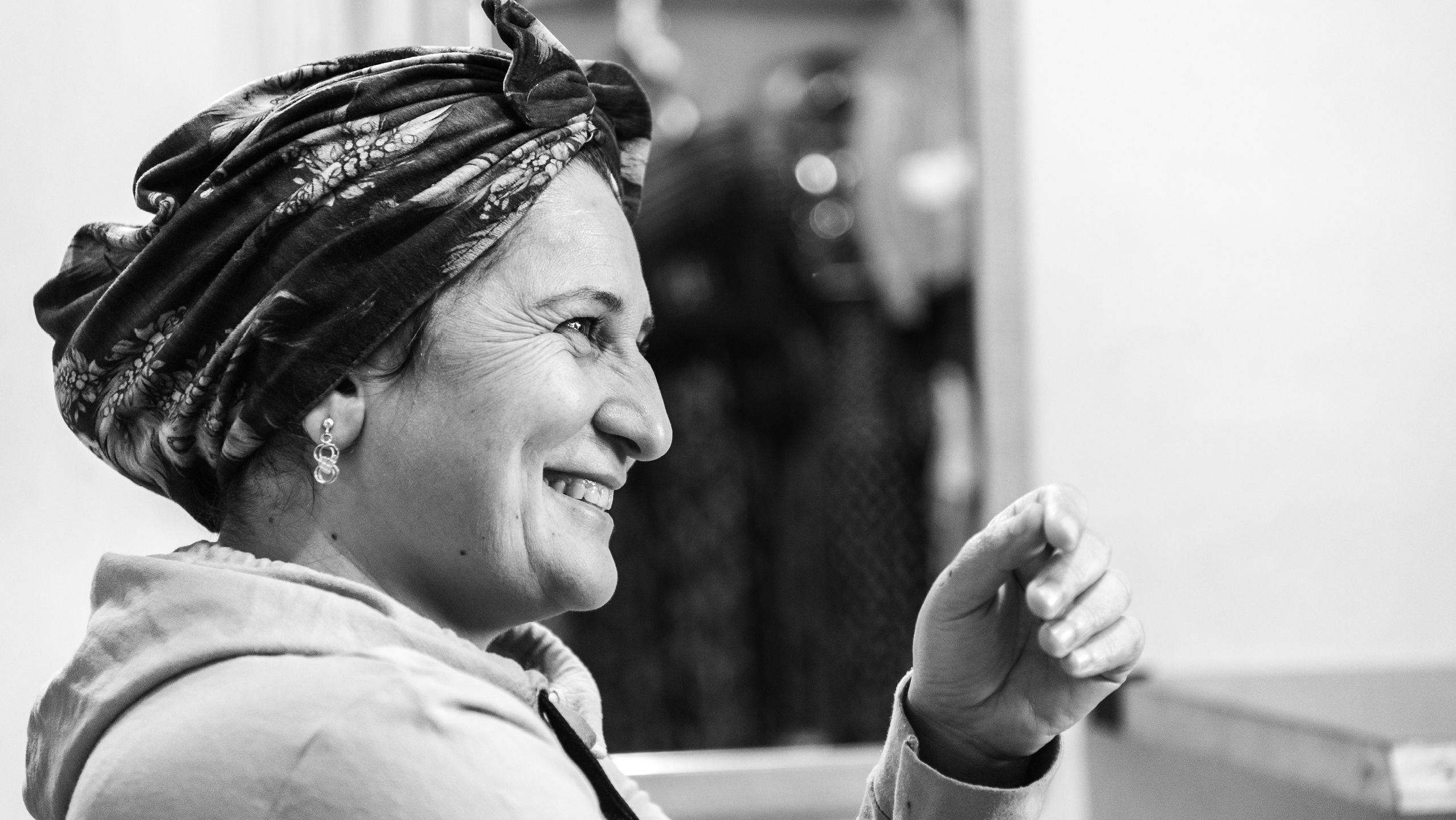
Do you dream of sewing your own dress? A dress that is both unique and will fit you perfectly? Gulistan dreamed bigger: she wanted to learn to sew at a professional level and make a living from it. Even war couldn’t stop her.

Two sewing machines. Fabrics in all colours. Sheets of sewing patterns, scissors, needles, thread and a tape measure. Decorative ribbons, buttons and zips.
“I sew all kinds of dresses, both for home use and for parties. These days, I like to make dresses where the fabrics are layered. And because it’s autumn, my customers want heavy and dark ‘winter fabrics’. In the summer I work with lighter, brighter materials,” says Syrian-Kurdish dressmaker Gulistan, 33.
Flowery fabrics. Delicate, sheer fabrics. Heavy velvet. Chain stitches, lock stitches, overlock stitches and cover stitches. Design. Cute children’s clothes. Beautiful dresses. Fashion trends on Facebook, Google and YouTube.
A world far from war.
But maybe not? While her hands guide the fabric through the sewing machine, do the haunting memories come back?
Does she still hear the sounds of planes, gunshots, screams?
The conflict in Syria started in the winter of 2011. As of June 2022, the UN estimates that at least 306,000 people have lost their lives in the more than decade-long war.
According to the Norwegian Refugee Council (NRC), almost seven million people have fled Syria. 10,766 of them live in the Domiz 2 camp, located in Dohuk, in the Kurdistan Region of Iraq (KRI).
One of them is Gulistan. She has lived here with her husband and children since 2013.
And this is where she has established her own sewing studio and shop.
But the road she had to take to get here was dangerous.
Always a “foreigner”
When Gulistan was growing up, she and her family were stateless. Gulistan’s parents were stripped of their Syrian citizenship during a one-day census in their hometown of Al-Hasakah in 1962. They were re-registered in the civil registry as ajanib, or ‘foreigners’ in Arabic, rendering them, and then Gulistan, without a country that would claim them. Stateless Syrian Kurds struggle to access schools, hospitals and jobs.
When the Government of Syria passed a law in 2011 allowing certain stateless Kurds to apply for Syrian citizenship, Gulistan was able to register, though the procedure was expensive and complex and she was lucky to complete it before she fled to KRI in 2013. Acquiring citizenship is not an easy feat: recent research by NRC in Dohuk found that one in 12 Syrian refugees in Dohuk are stateless. There are close to 7,000 stateless Syrians in Dohuk, or eight per cent of the total number of Syrian refugees there.
Gulistan's story
The dressmaker sits down at her sewing machine to finish a child’s dress. Her apprentice, Nirgiz, 20, watches intently. Gulistan doesn’t just share simple sewing tips. She shares her knowledge of aesthetics and technique, as well as concepts on how to improve one’s sense of form and understanding of textiles.
She also talks about the importance of setting yourself goals in life. And that you have to work hard to reach them. That you must not allow yourself to succumb to external pressures. That your goal must be your goal, not something that others can change.
She speaks from experience.
This is Gulistan’s story – told in her own words.
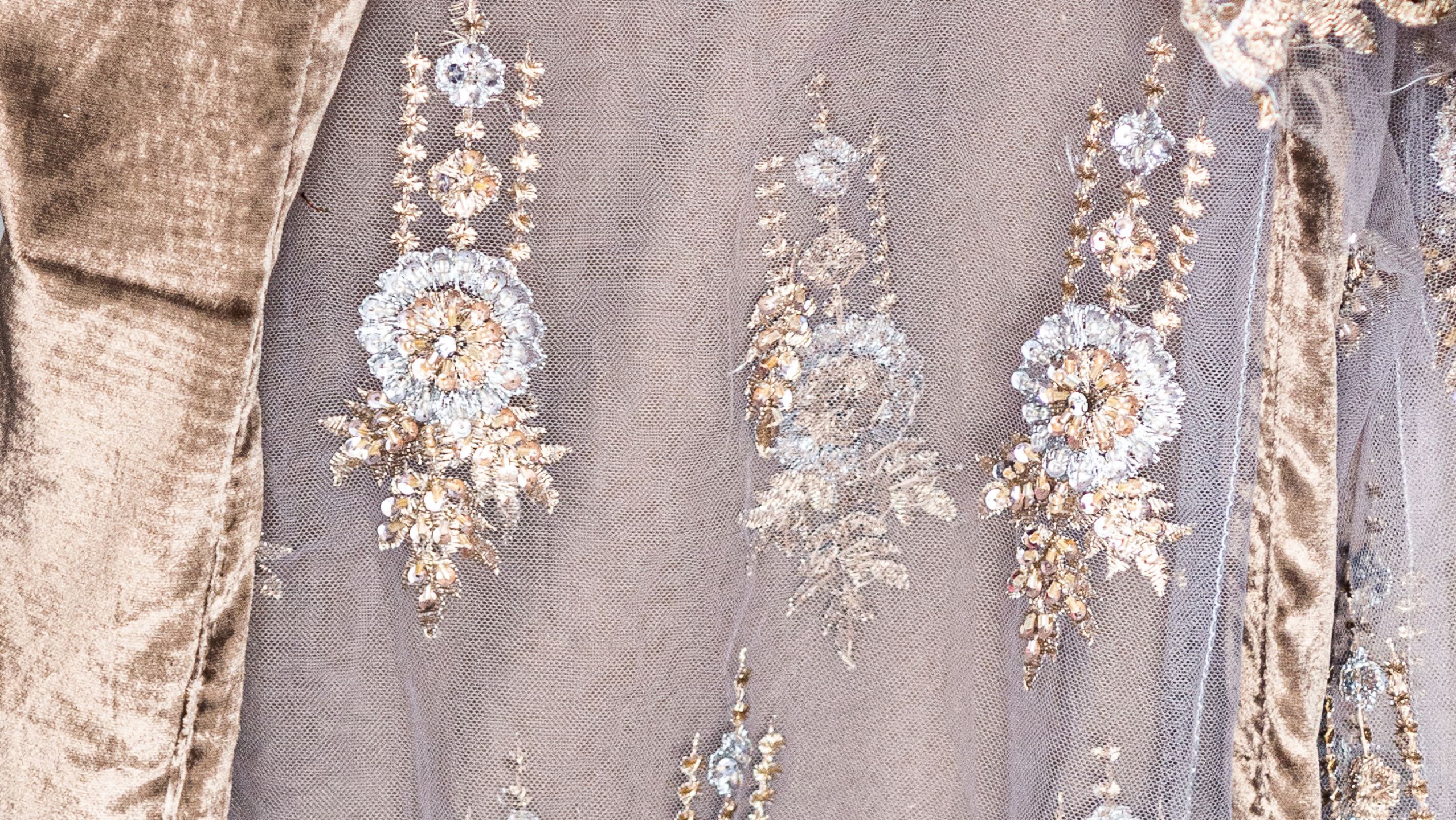
1: Take measurements to find the size
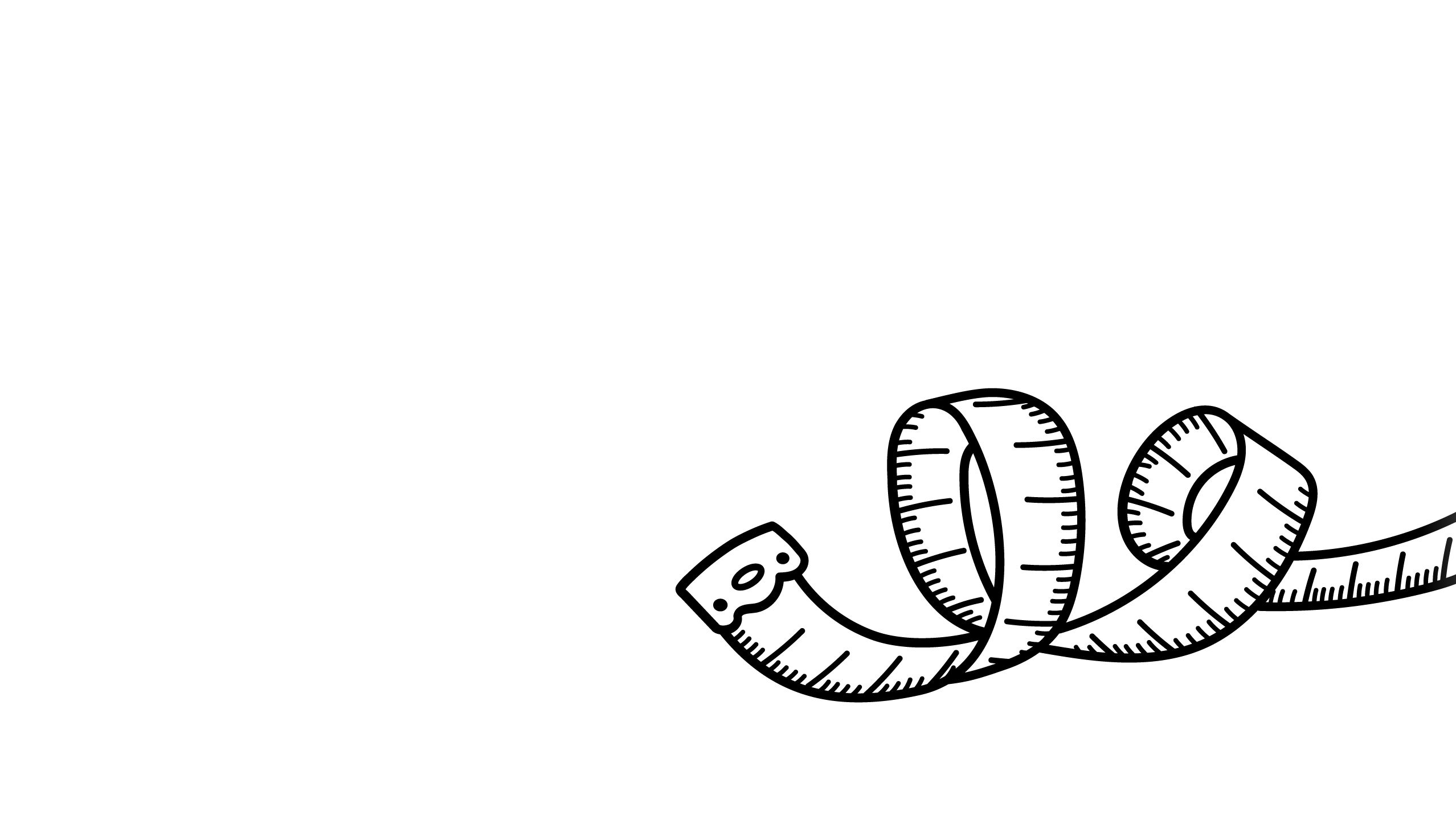
I come from a village in Al-Hasakah, which is located in the north-east of Syria. We were twelve children, ten girls and two boys. My father was a day labourer and a skilled farmer. He could neither read nor write, but it was important for him to see that all of us children received an education.
Even so, I left school early, just after the ninth grade, when I was fifteen. Why? I was a bit tired of it. And I didn’t want to make the trip to the upper secondary school, which was far away.
My aunt moved to the capital Damascus to work in a private kindergarten. I followed and looked after the teachers’ children. I lived with my aunt for almost three years. Then she got married and I returned to my village.
My father said I had to learn a trade. We have a relative who is a dressmaker. I ended up going to her to learn how to sew. It wasn’t for me. But when I saw other girls coming there to sew school uniforms, I felt ashamed that I wasn’t doing my part to help support the family.
So I decided to really get into sewing. At that time, I used to tease my relative to make her teach me as much as possible. I would say things like: “If you don’t teach me that now, I’ll play pranks on you.” Soon she said I wasn’t like the other apprentices. That I was the smartest of them and that I had talent. She said I should continue learning the profession.
I bought my first sewing machine when I was 19. Then, people in the village started asking me to sew clothes for them. My relative also sent me work – tasks that would help me hone my skills.
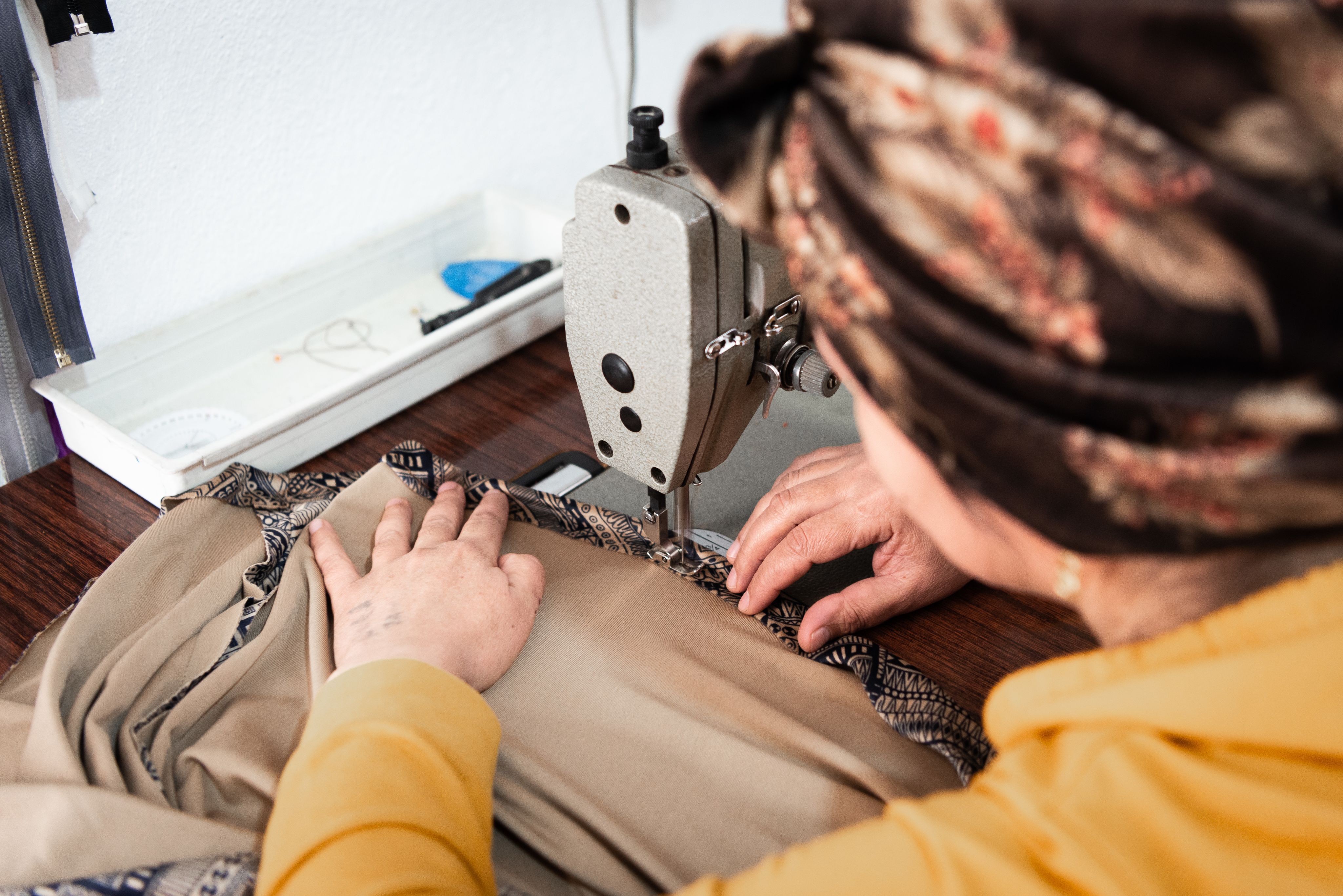
“At the time, I used to tease my relative to make her teach me as much as possible about sewing. I would say things like: ‘If you don’t teach me that now, I’ll play pranks on you’,” says Gulistan with a small laugh.
“At the time, I used to tease my relative to make her teach me as much as possible about sewing. I would say things like: ‘If you don’t teach me that now, I’ll play pranks on you’,” says Gulistan with a small laugh.
People said I should get married. They said: “Your father has so many daughters, you should get married so he doesn’t have to support you anymore.”
It is a tradition in our district that if a girl is good at something, like cooking or something like that, she is known as a good wife. I had always thought that I would marry for love. But it so happened that, when I was 20 years old, I married Marwan, who was 29 at the time.
What made me say “yes” to his proposal was that he was working as a waiter in a restaurant in Damascus at the time. I thought: “This is good for me because his restaurant guests may well become my customers.” So for me, getting married was just a simple and practical solution. I wasn’t thinking about having children and things like that. I said to my husband: “I will go with you to Damascus. But I won’t share the money I earn with you. I would rather send the money to my siblings so they can get an education.”
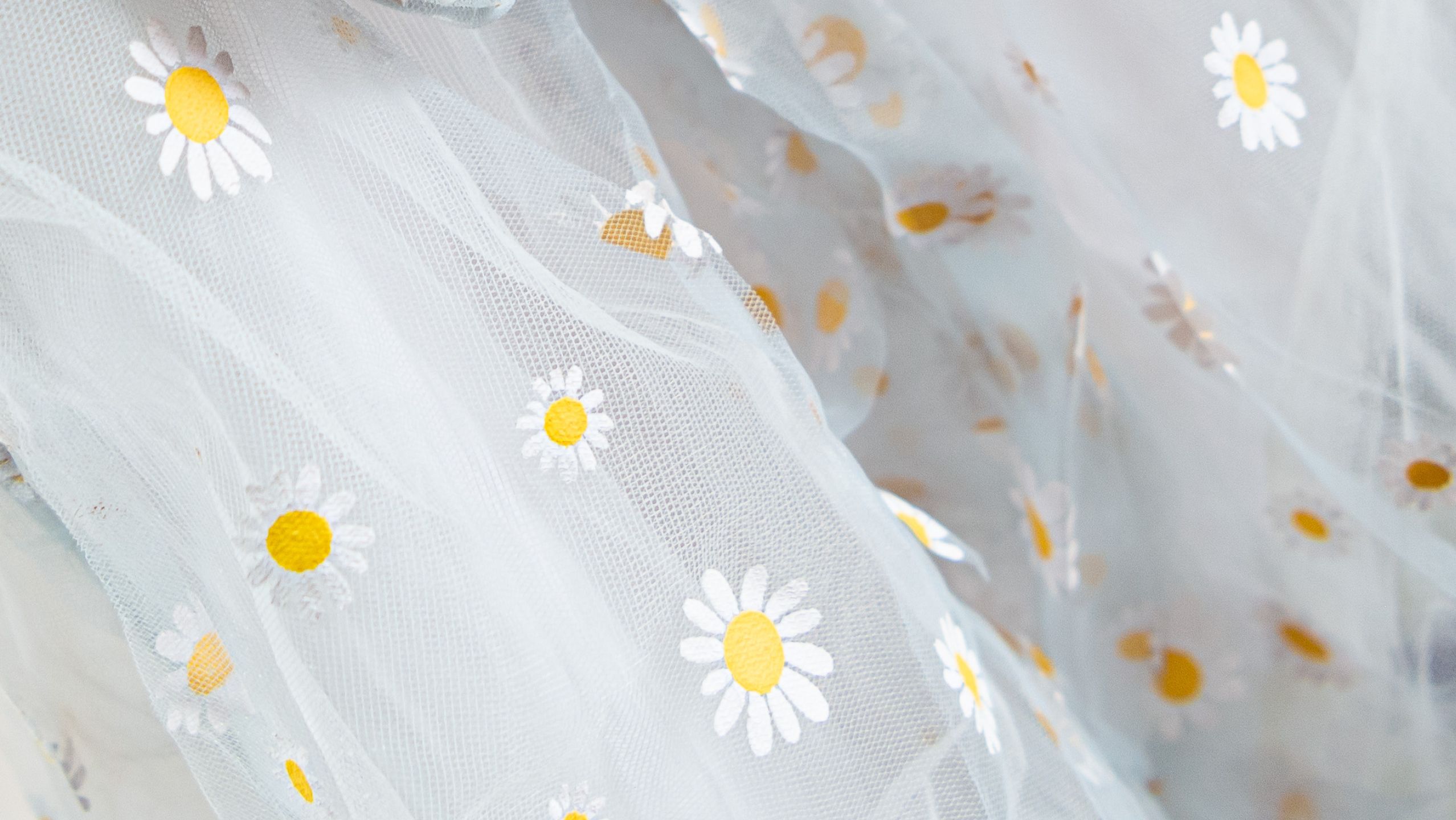
2: Lay out the pieces of the pattern on the fabric
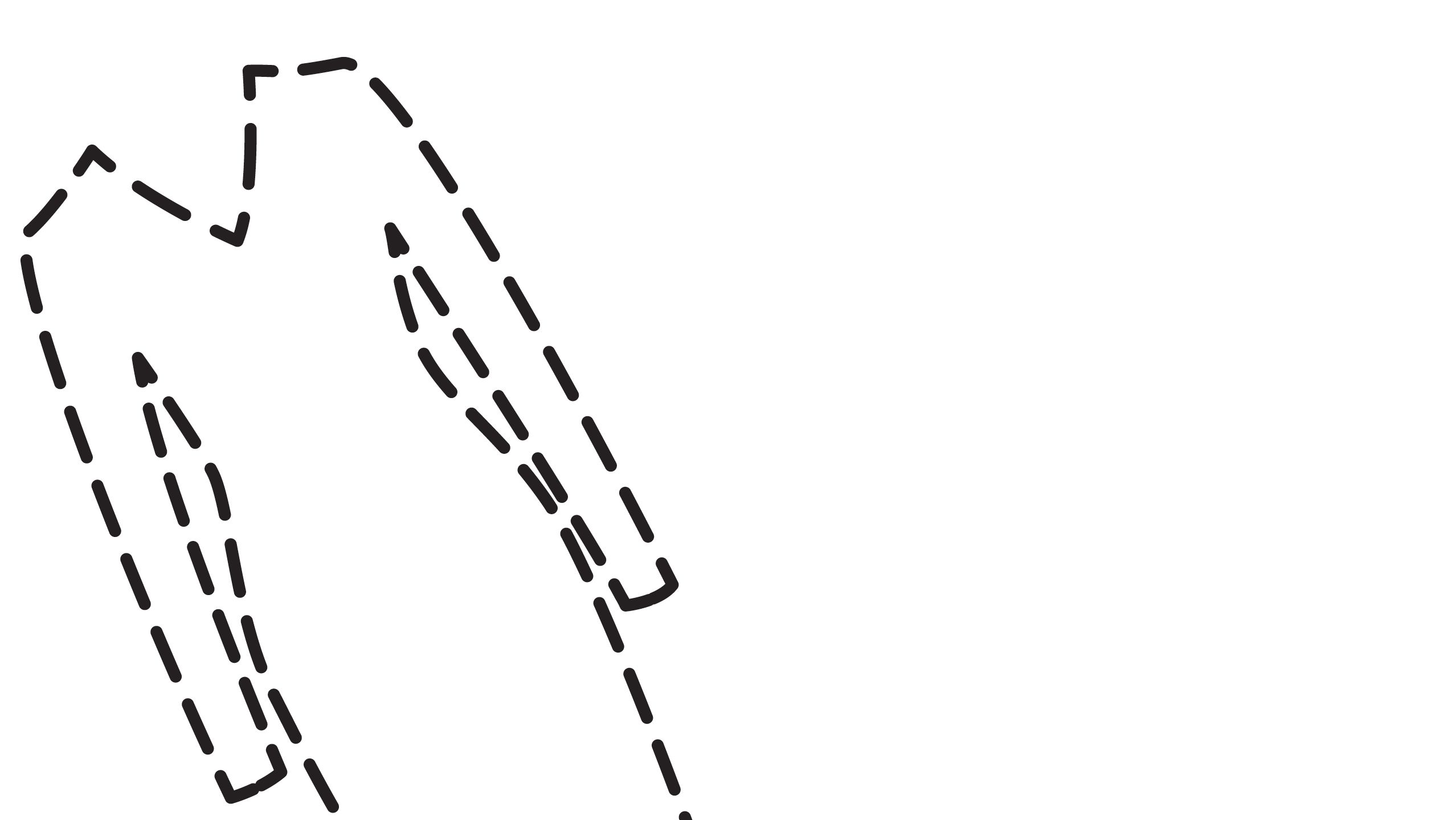
In Damascus, we rented an apartment owned by the restaurant owner. They spoke a dialect that I didn’t understand. We were the only Kurds there.
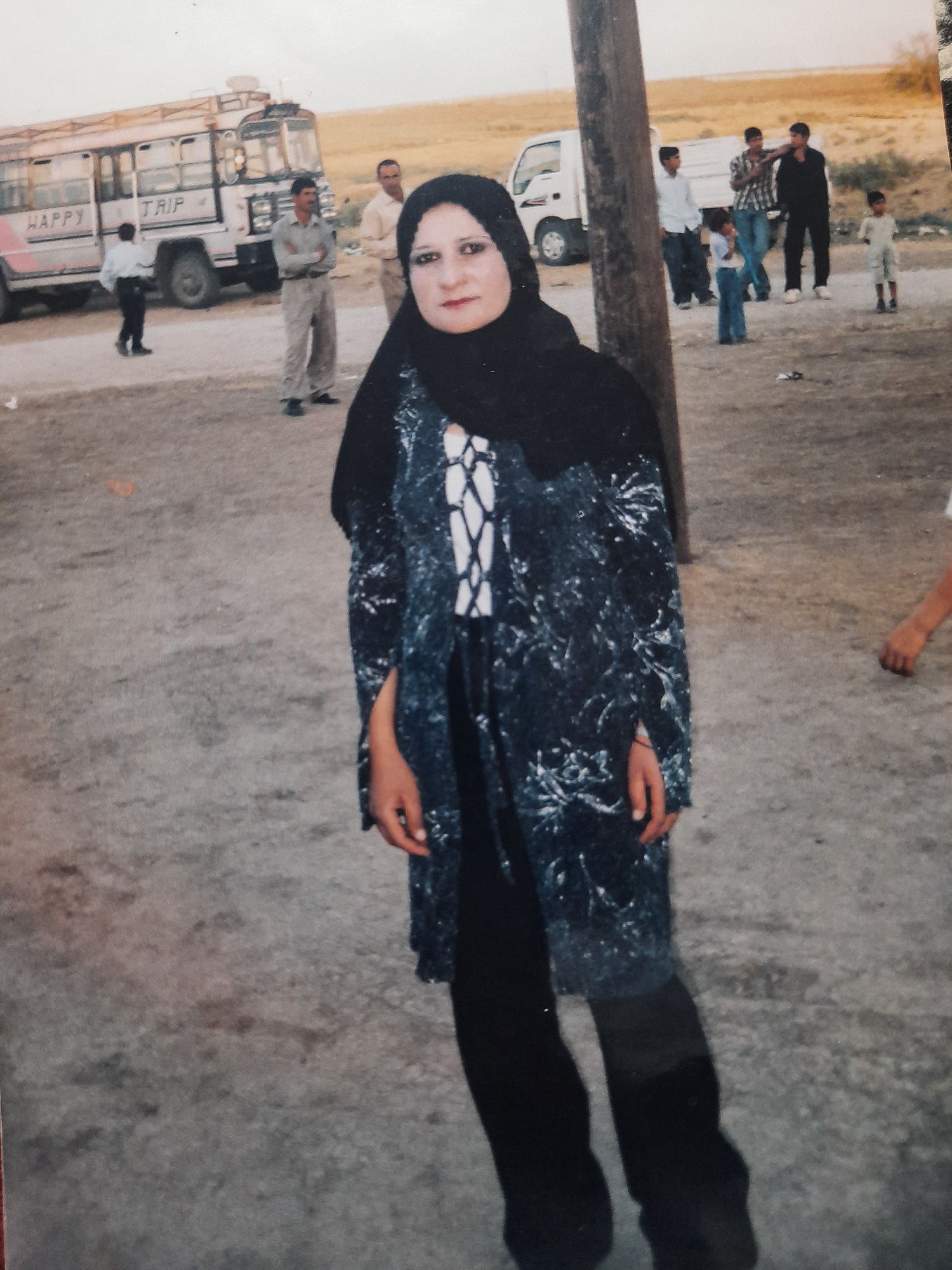
Gulistan on her way to Damascus after getting married, in clothes she hand-sewed herself. Photo: Private
Gulistan on her way to Damascus after getting married, in clothes she hand-sewed herself. Photo: Private
I started by exploring the neighbourhood to see the customer potential and understand how to go about making money from my work. Then, I sewed a garment and showed it to a tailor who was a 30 minute drive away. He loved my work and wanted me to start working with him. To which my husband said: “It will be a long way to work.” But he agreed and I started working there.
In the beginning, the tailor gave me tasks which I completed quickly. After a week he said my work was very good. He told me that he had a business with many seamstresses who made suits and many other things, and I could start working there.
After two months I received a phone call: My father had fallen ill. My husband bought me a bus ticket and I went home.
My father was aware that I had been sending money to my siblings. And he didn’t like it. He became angry and said: “I didn’t want you to work to support your sisters. It is not up to you to support them. That’s my responsibility.” He also said he didn’t like me living in Damascus because it was too far away from my family.
I was with him for a month. When he got better, I went back to Damascus. At that time, I realised that we were expecting a baby.
My husband said: "Now that you are pregnant, you must stop working."
At the same time, the tailor called and said he wanted me back at work.
But I had to tell him that I quit.
I became depressed. Felt alone because I didn’t know anyone where we lived.
But then it was holiday season. It was an especially busy time for the tailor I had worked for. One day he sent me a sewing machine and some pre-cut pieces of fabric to sew together.
My husband, who himself had got a new job as a security guard, agreed that I would work from home.
I worked two to three hours every day. I kept the money myself.
After our son Loay was born, I continued working from home. I sewed while he slept.
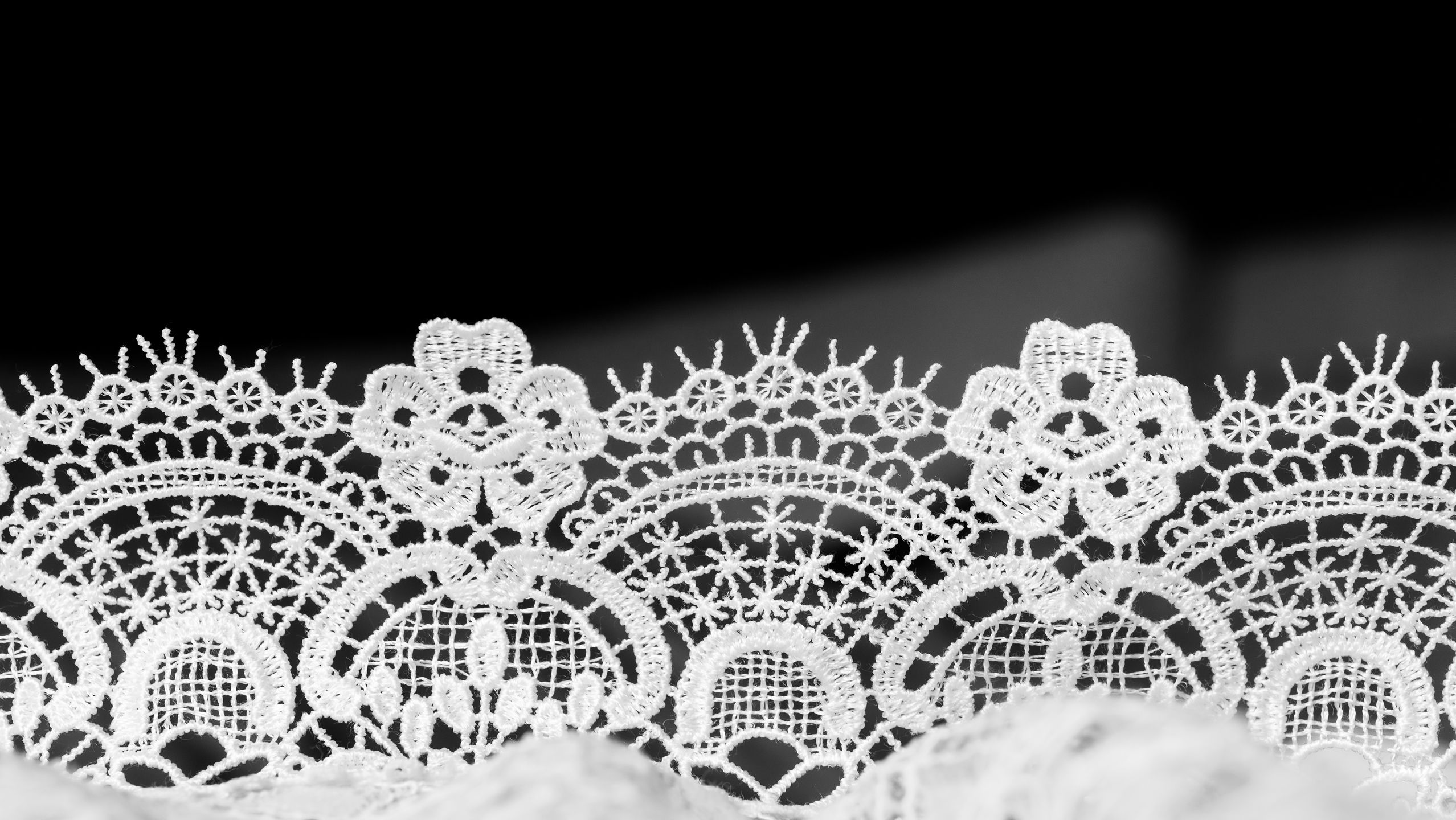
3: Cut out the parts with a one cm seam allowance outside the pattern
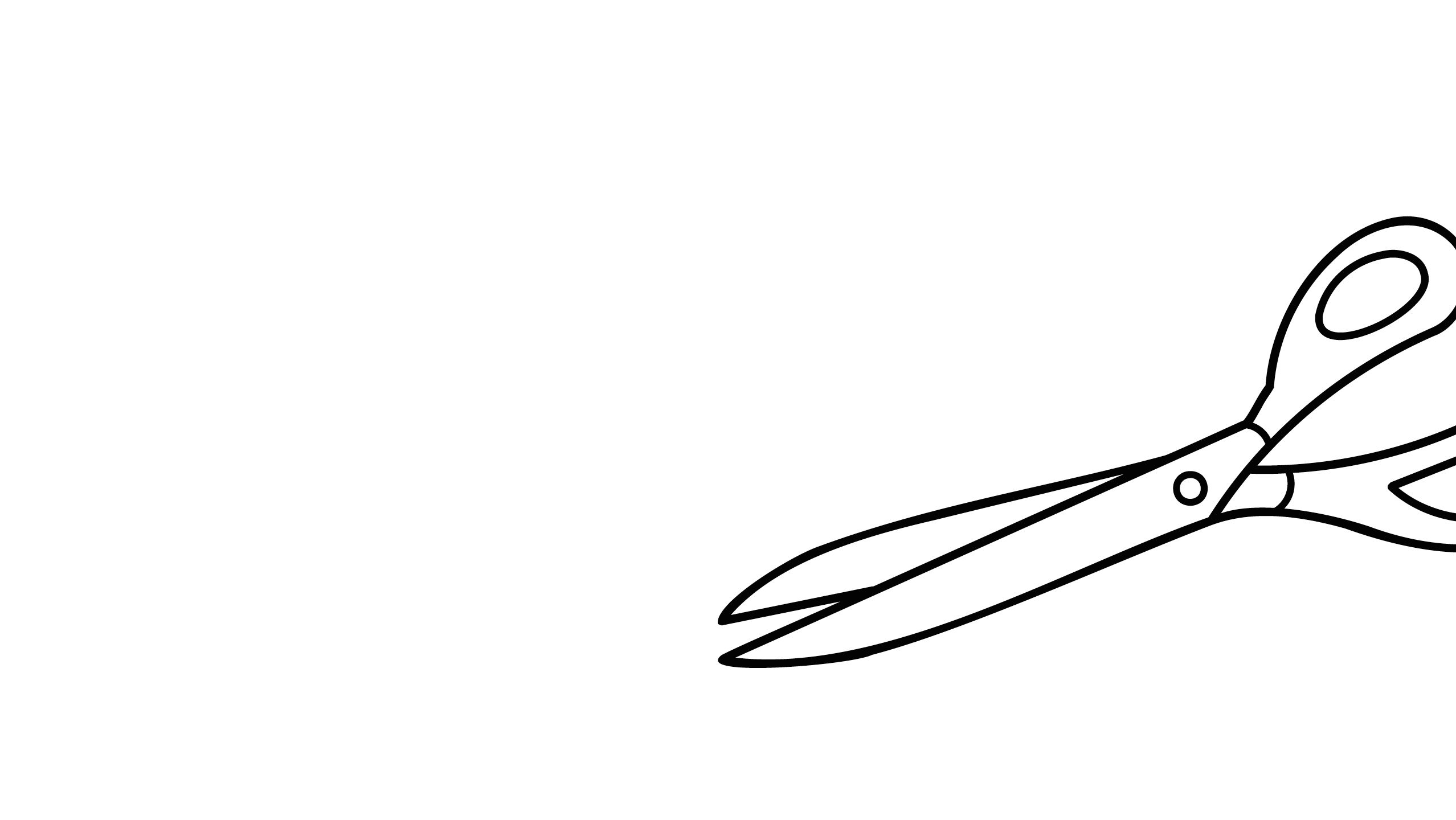

My son was ten months old when the crisis began in Syria in 2011. Tension then conflict reached our area and we had to move four times.
I discovered I was pregnant again.
Towards the end of 2012, the situation became intense, with a lot of airstrikes and shooting. Our house was full of bullet holes. We didn’t know who was shooting at whom, but there was a lot of shooting and killing.
I remember one night there was a knock on the door. There were several families there. The men asked if we could shelter the women and their children for the night. They said they came from an area where there was fighting and bombing.
In October 2012, things were bad and many fled the country. I took our son and daughter, Simar, with me and went home to Al-Hasakah. We stayed there for a month.
Then my husband called and asked me to come back to Damascus: “We have to arrange birth certificates for Simar and passports for everyone.” A friend of his had advised us to go to the United Arab Emirates, where there was also supposedly work available. But everything was so chaotic that we didn’t make it.
We just had to get away.
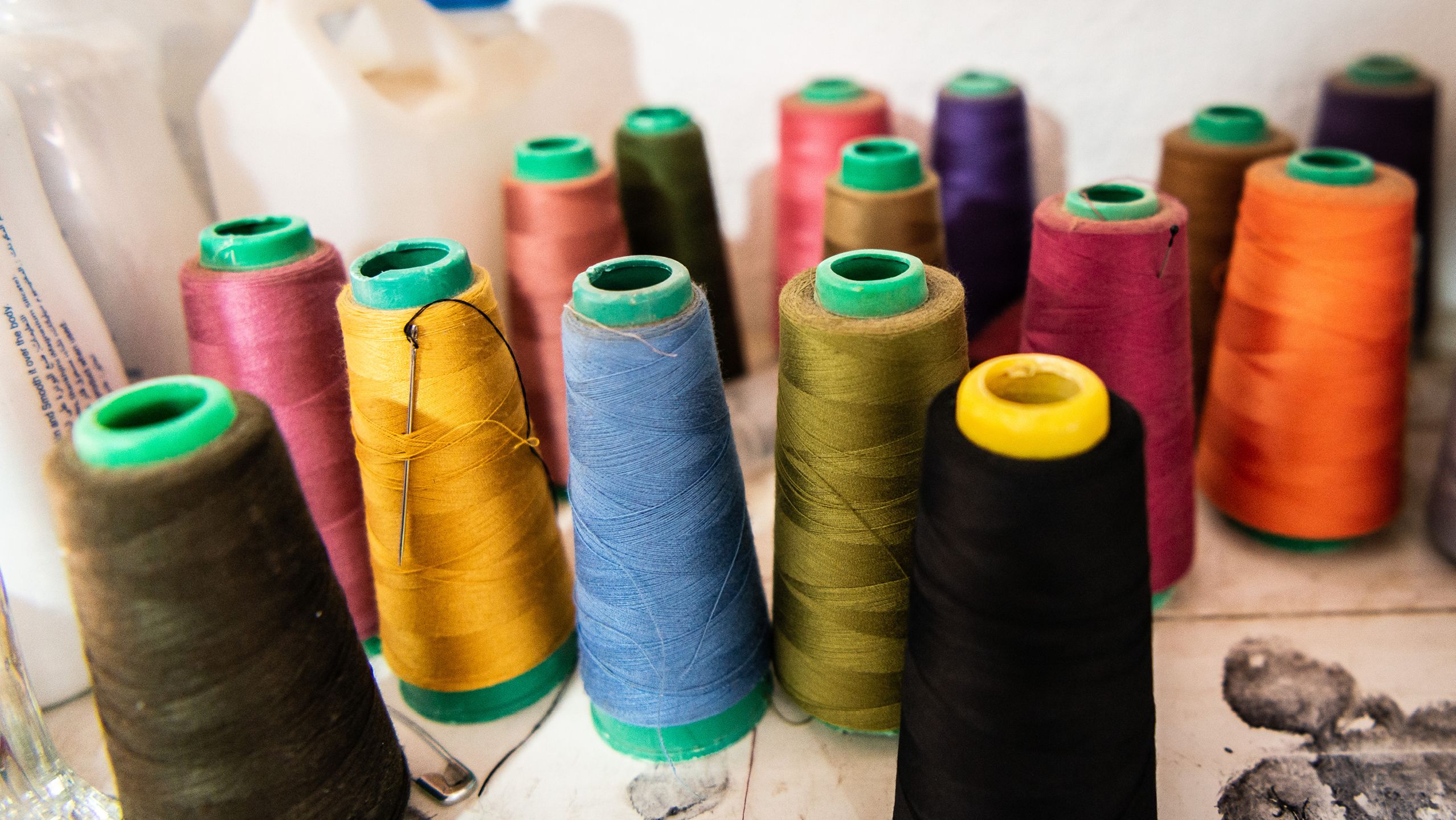
4: Pin the pieces of fabric together, the outer sides facing each other
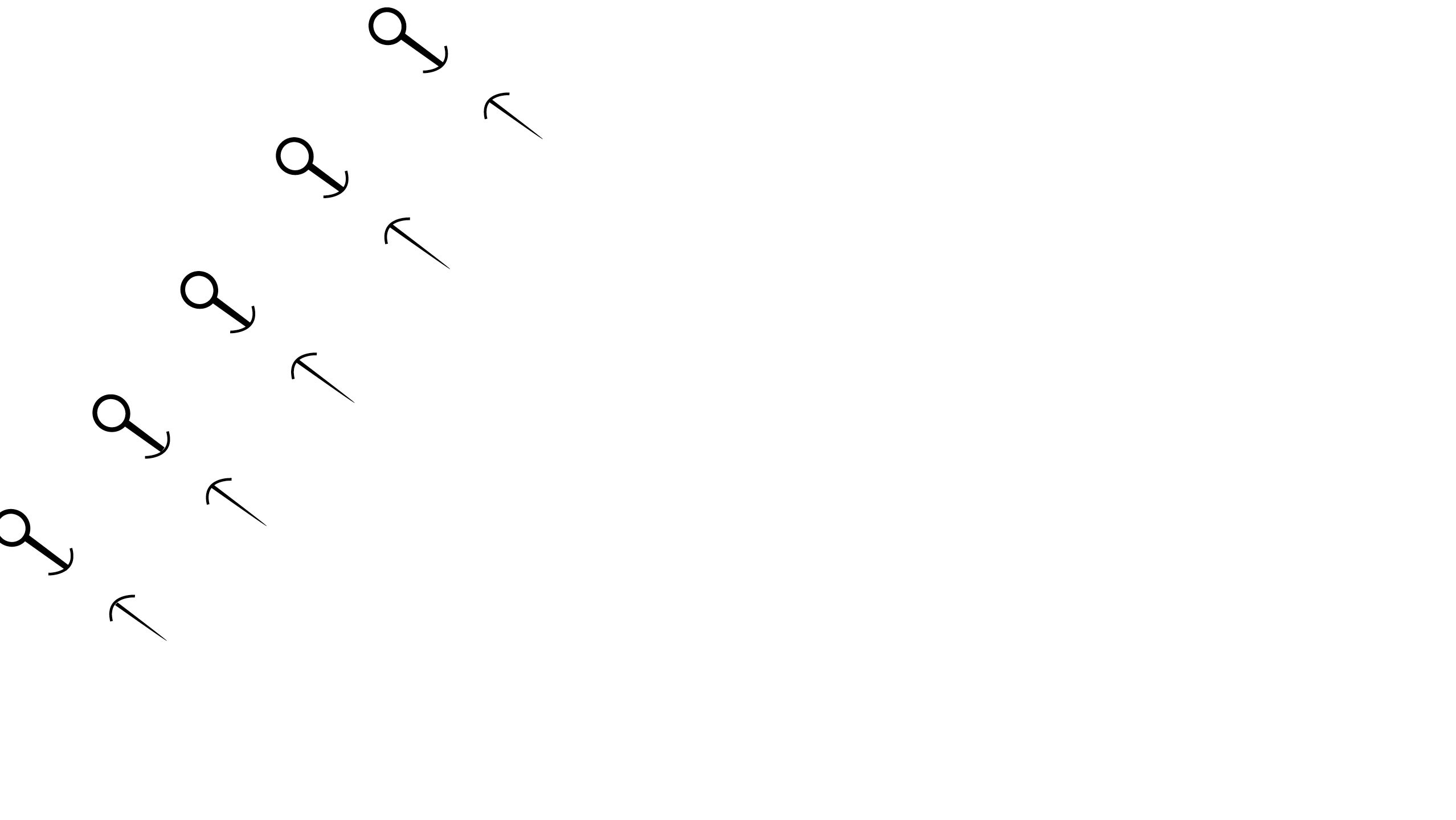
Together with two of my sisters and their families, we drove to the border. This was in 2013. We crossed over and were met by the Peshmerga, Kurdish military forces. They were friendly and helped us to the Domiz 1 camp, later we were moved to Domiz 2.
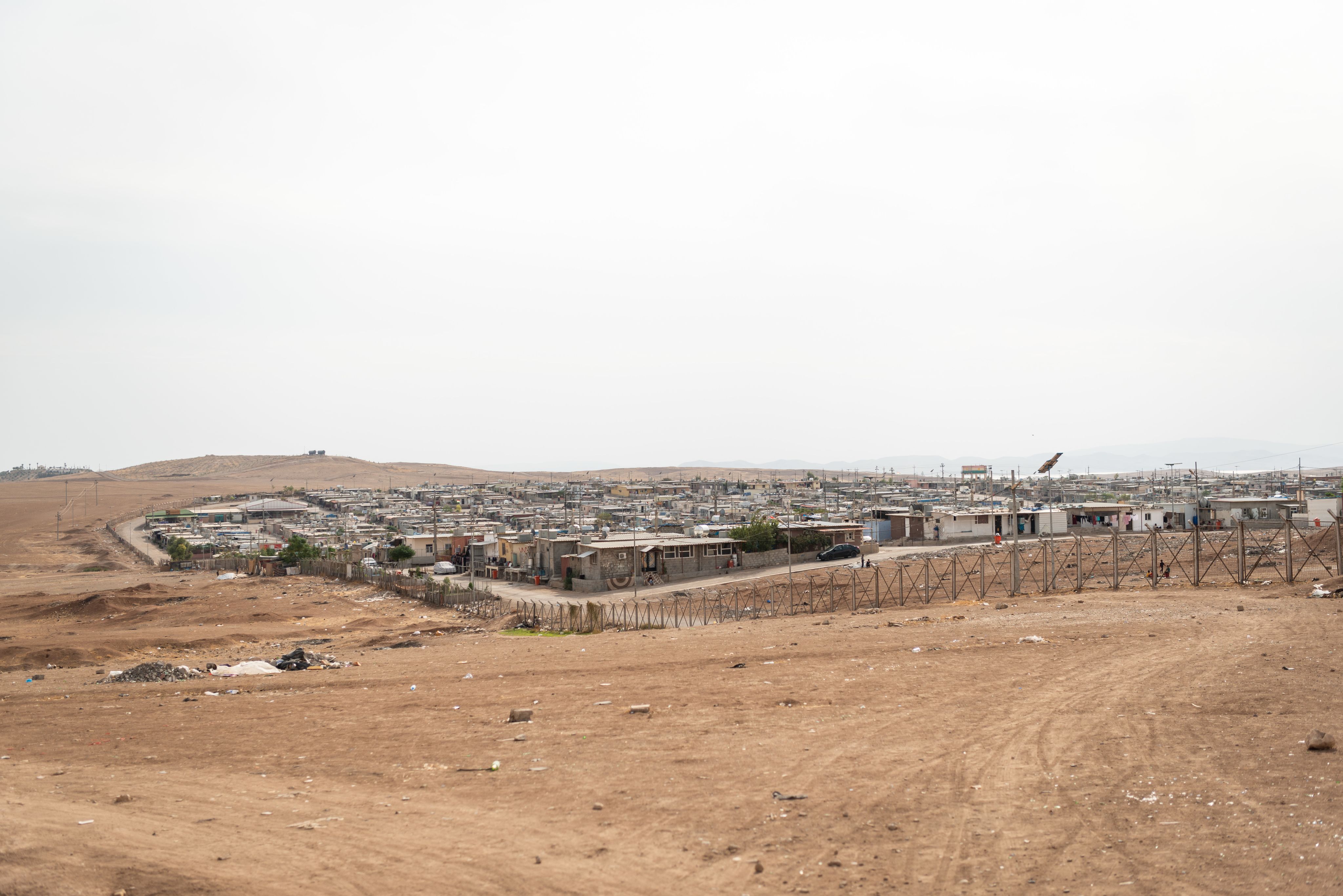
Domiz 2 refugee camp in Dohuk.
Domiz 2 refugee camp in Dohuk.
At first, we shared a tent with my husband’s relatives. It was difficult to live like that. Eventually we got a separate tent next to theirs. But we weren’t used to that kind of situation.
We had left everything we owned in Syria and didn’t even have clothes for our children. My husband was so stressed by the situation that he ended up having a stroke. He became paralyzed in half of his body and in one eye.
Towards the end of 2013, we learned that there was a house for us in Domiz 2. And through a local humanitarian aid organisation, my husband got a job as a security guard. He still works there.
When we arrived in Domiz 2, I decided I wanted to start sewing again. Just under a year later, I got money from my husband so I could buy this green sewing machine here.
At that time, we had realised that both children inherited an eye disease from their father. They are dependent on wearing glasses.
When I asked my husband for money for the sewing machine, he was initially doubtful: should he spend the money on a sewing machine or on glasses for the children? Then I insisted that it had to be the sewing machine. I could get them glasses later – and more.
I worked in the years leading up to 2020, mostly from home. But I was usually just repairing clothes.
One day, I got a call from my sister who lives in Germany. She had seen online that it was possible to apply to NRC for a business grant. When I heard that, I laughed. I said: “I really just fill out a form and apply?” And my sister said: “Yes, you should try.”
So I did.
And I received financial support so that I could open a sewing studio with a shop. Now I had more space and equipment and could make whole garments that people wanted to buy. Through NRC, I received a one-week course where I learned how to market myself and grow my business.
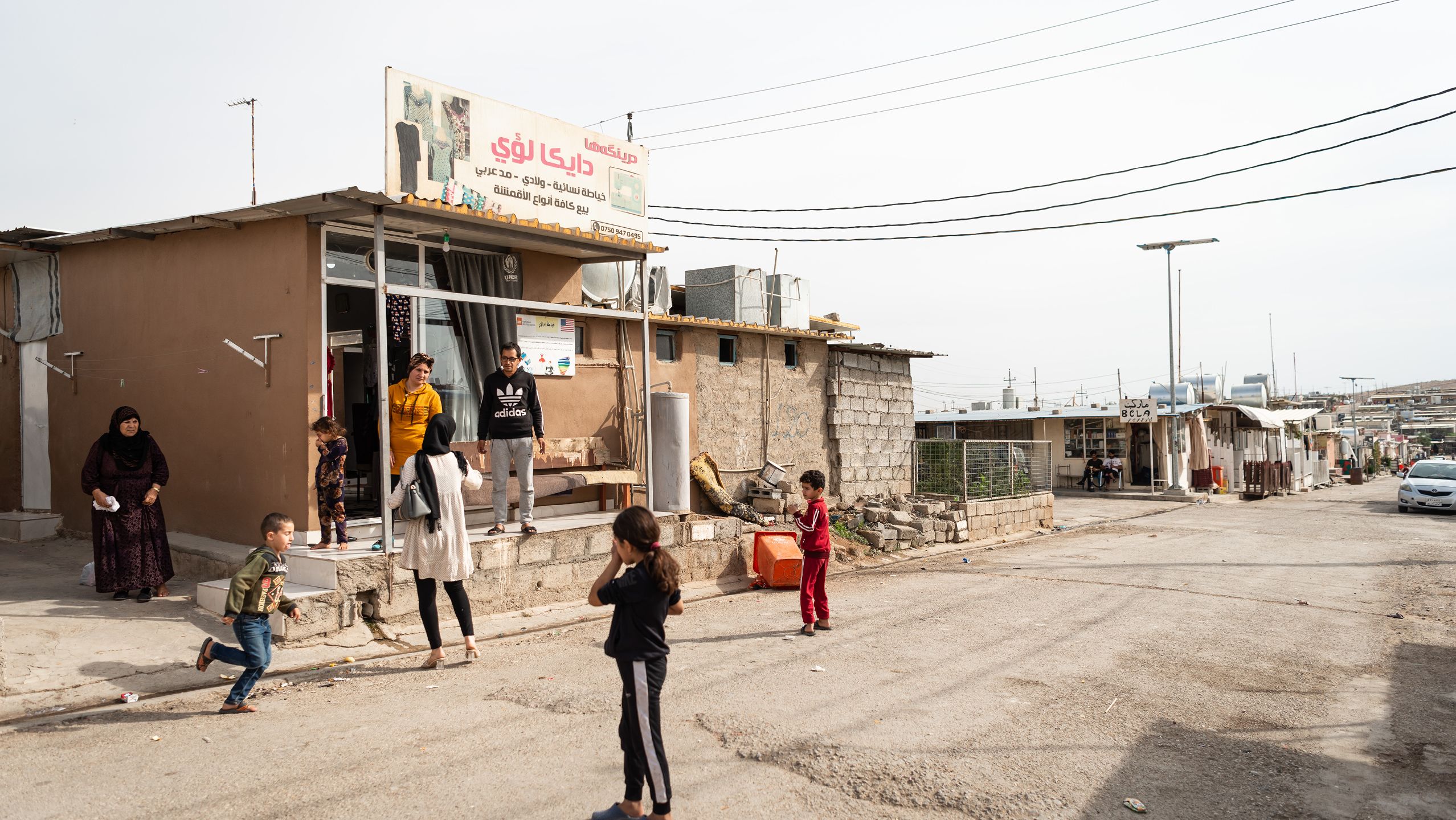
Gulistan’s sewing studio is located in Domiz 2 refugee camp. Her customers are Syrians who live here, or people who order tailor-made garments from Germany.
Gulistan’s sewing studio is located in Domiz 2 refugee camp. Her customers are Syrians who live here, or people who order tailor-made garments from Germany.
After moving to Domiz 2, I have gone from earning USD 20–30 per week, to USD 500. I use the money on our home, for doctor’s appointments and for glasses for our children. And everything else they need.
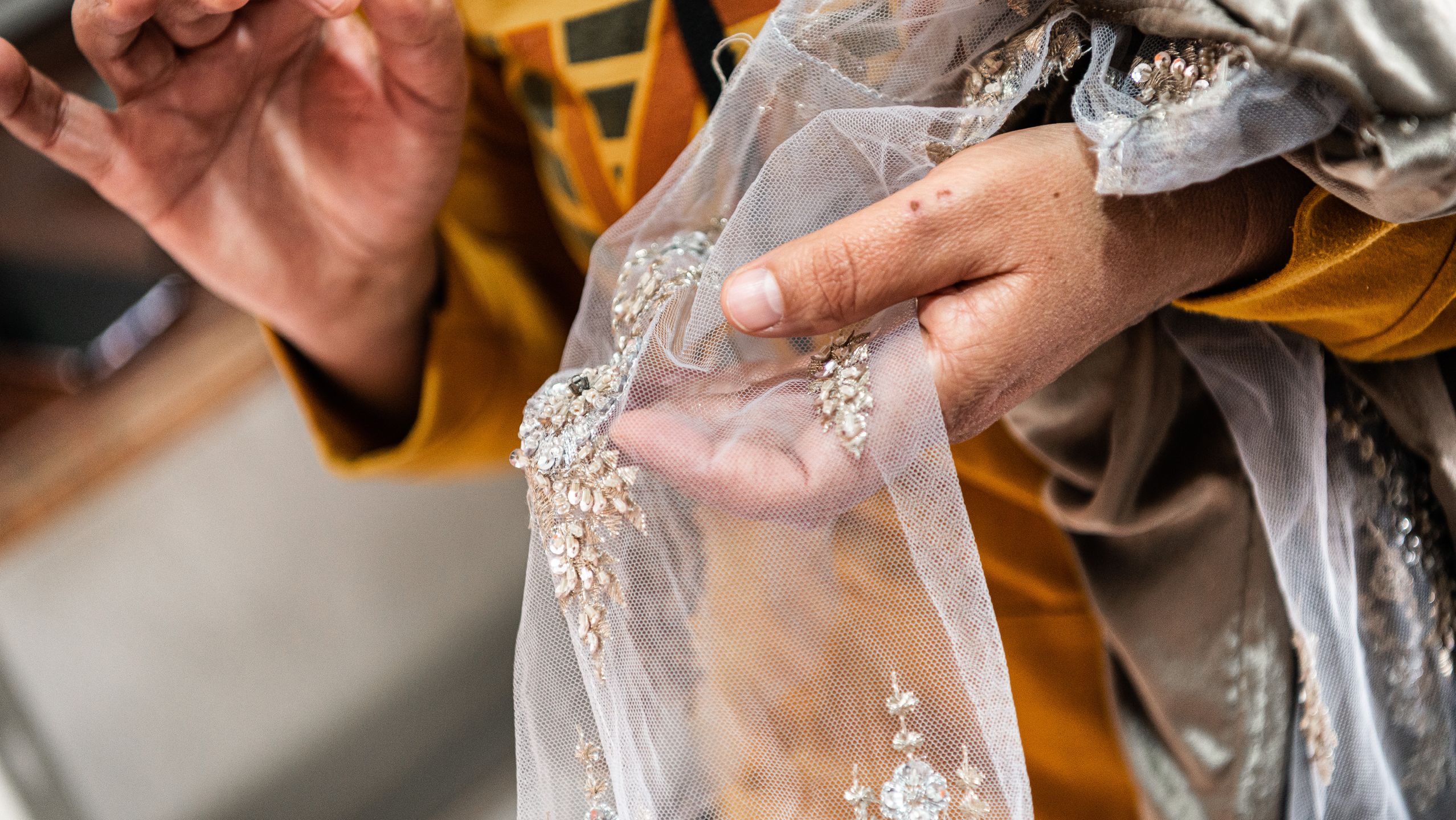

5: Iron the pieces of fabric together by hand, see if the garment fits – and sew it up with a sewing machine
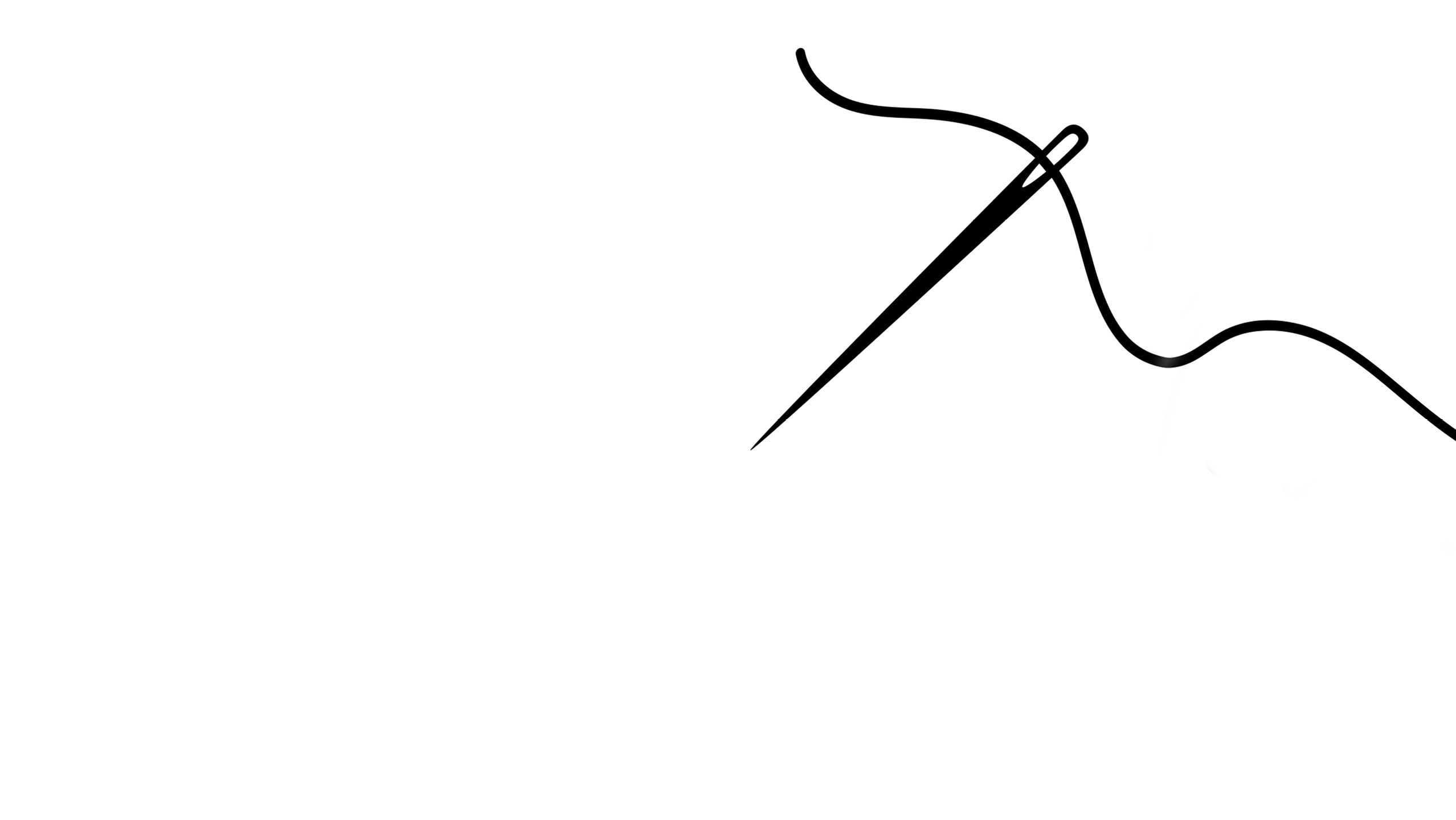
Once, I was asked to make a special party dress. It was long and blue, with three layers and puff sleeves. When I saw a picture of it I said: “I can’t do that.” She said: “Oh, I’m sure you can do it.” And I did.
I like everything I sew.
I always make something out of scraps of fabric. Like this hat, for example. Or that child’s dress over there.
When I make children’s clothes, I try to make garments that are a little different, by using colours that children like, for instance. Different fabrics. Lots of pockets. I have to laugh a little at our youngest daughter, Sia' al, four, who is currently wearing a floral tracksuit I made: She gets jealous when I make clothes for other children!
Today, my husband helps me a lot. I share my ideas with him, and he encourages me. We go to the market together to buy sewing supplies. He helps me in the shop, too.
And what about the future, you ask. It is safe to live here. But we don’t know how long we will stay.
I think it would be easier to expand my business elsewhere.
